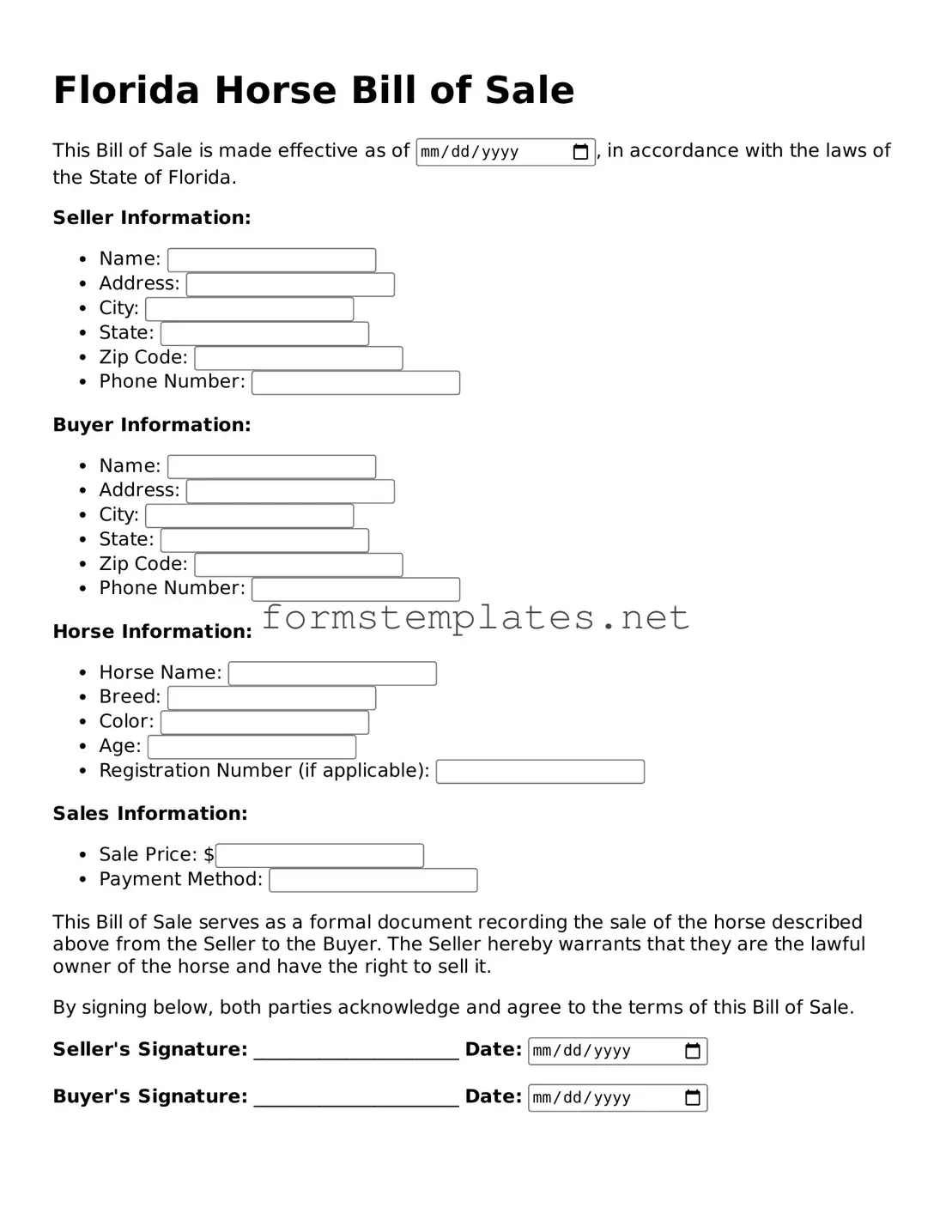What is a Florida Horse Bill of Sale?
A Florida Horse Bill of Sale is a legal document that records the sale and transfer of ownership of a horse. This document serves as proof of the transaction and includes important details about the horse, the seller, and the buyer.
Why is a Horse Bill of Sale important?
This document is essential for several reasons:
-
It provides legal evidence of ownership.
-
It protects both the buyer and seller in case of disputes.
-
It may be required for registration with breed associations or competitions.
A typical Horse Bill of Sale includes:
-
The names and addresses of the buyer and seller.
-
A description of the horse, including breed, age, color, and any identifying marks.
-
The sale price and payment terms.
-
The date of the transaction.
-
Signatures of both parties.
Do I need a notary for the Horse Bill of Sale?
While a notary is not required for a Horse Bill of Sale in Florida, having the document notarized can add an extra layer of authenticity. It may be beneficial if disputes arise in the future.
While you can use a generic Bill of Sale form, it is advisable to use a specific Horse Bill of Sale. This ensures that all relevant details specific to equine transactions are included, providing better protection for both parties.
Is a Horse Bill of Sale legally binding?
Yes, a properly completed and signed Horse Bill of Sale is legally binding. It outlines the terms of the sale and can be enforced in a court of law if necessary.
What if the horse has health issues or defects?
It is crucial to disclose any known health issues or defects in the Horse Bill of Sale. Failure to do so can lead to legal disputes. Buyers should conduct their own inspections and ask for veterinary records before finalizing the sale.
Can I cancel a Horse Bill of Sale after signing?
Once signed, a Horse Bill of Sale is generally considered final. However, if both parties agree, they can create a new document to cancel the transaction. It is advisable to document any changes in writing.
What happens if the buyer does not pay?
If the buyer fails to pay as agreed in the Horse Bill of Sale, the seller may have legal recourse. This could include pursuing a claim in small claims court or seeking mediation to resolve the issue.
You can find Florida Horse Bill of Sale forms online through various legal document websites or equine organizations. Ensure that the form you choose complies with Florida laws and includes all necessary information.

